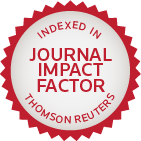 First Journal Impact Factor for ESSD released
First Journal Impact Factor for ESSD released
17 June 2016
Thomson Reuters released the 2016 edition of their Journal Citation Report®. We are delighted to announce that Earth System Science Data (ESSD) received its first Journal Impact Factor of 8.268 for 2015.
An extraordinarily high Impact Factor – ESSD ranks second in Thomson Reuters’ subject category "Meteorology & Atmospheric Sciences" and third in the category "Geosciences, multidisciplinary" – confirms our goals for ESSD: to expose and share quality data sets of high value to the scientific community and to provide recognition for data providers. The high rating reflects the considerable efforts and high standards of ESSD authors, editors, and referees.
We launched ESSD in 2008, when publishing data represented an untried concept; applying DOIs to data sets had just started. The idea of a journal dedicated to publication of well-described data sets, with rigorous editorial processes to facilitate citations and referencing, proved revolutionary in the earth sciences. We thank the late Arne Richter, then Managing Director of Copernicus, who believed in the ESSD vision. From that point forward ESSD has enjoyed skilful and generous support from Copernicus Publications and its editorial and publication staff.
ESSD established itself as a reliable access and discovery tool for a wide community of science users. One can hardly read a paper in climate science without seeing reference to the most recent global carbon budget data published in ESSD, but researchers can also access systematic atlases of marine plankton or permafrost carbon, a historical compilation of forest fires in the USA, or plume extent – monitored by a unique radar-camera combination – of an Icelandic volcano, etc. This combination of systematic coverage with serendipity remains an attractive feature of ESSD.
ESSD proved the practicality of data citation and plays a positive role in the evolution of data access services and policies. The journal promotes the use of DOIs to track data sets and their use in linking data sets with science articles. We particularly like ESSD's role in promoting open-access data centres. Together with these data centres we have demonstrated practical and useful progress toward a global research data infrastructure. We hope that ESSD's success encourages researchers to cite, reference, describe, preserve, and share data!
Dave Carlson and Hans Pfeiffenberger ESSD chief editors
Contact Media & Communications.